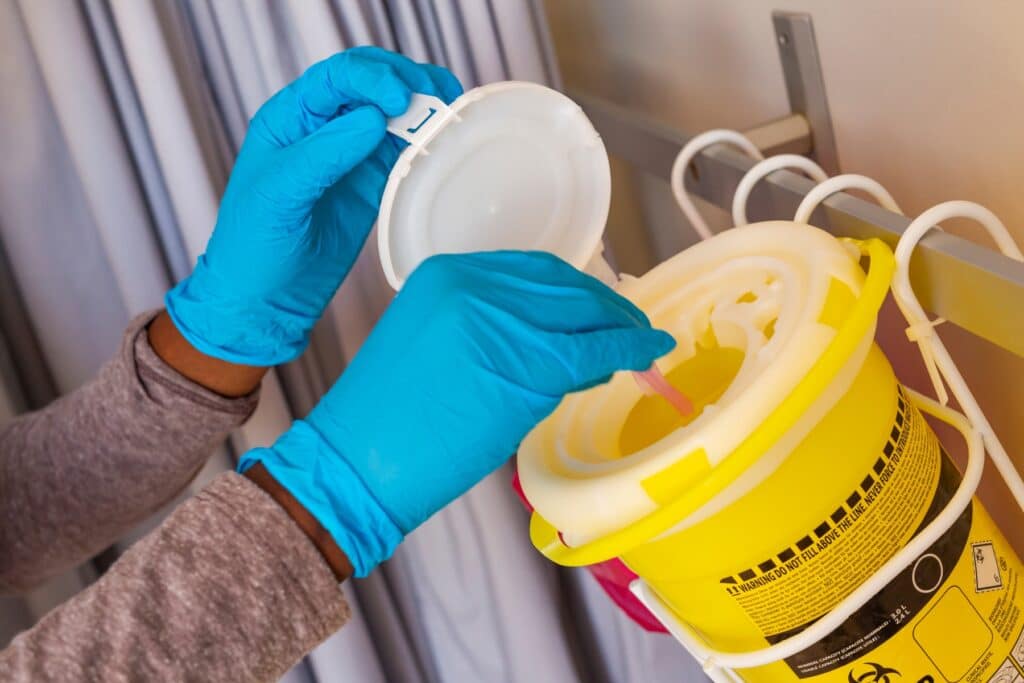The Importance of Proper Disposal: Ensuring Safe Pharmaceutical Waste Management

Proper disposal of pharmaceutical waste in healthcare settings is crucial for ensuring the safety of both healthcare professionals and the environment. Pharmaceutical waste includes expired medications, unused drugs, contaminated packaging, and other materials. This blog post will explore the importance of proper disposal methods for pharmaceutical waste and discuss the critical considerations for safe and compliant waste management.
The Significance of Proper Disposal:
Improper pharmaceutical waste disposal can harm human health and the environment. Pharmaceuticals can contaminate water sources, soil, and ecosystems if disposed of incorrectly. Moreover, uncontrolled access to expired or unused medications can lead to misuse and abuse. Healthcare facilities can prevent these risks by implementing proper disposal practices and creating a safer and healthier environment.
Safety and Compliance:
Proper disposal methods for pharmaceutical waste ensure the safety of healthcare professionals who handle these materials. It minimizes the risk of accidental exposure to harmful substances and reduces the potential for drug diversion or unauthorized access. Additionally, adhering to disposal regulations and guidelines, such as those outlined by the Environmental Protection Agency (EPA) and state or local authorities, helps healthcare facilities maintain compliance and avoid legal and regulatory issues.
Environmental Stewardship:
Responsible pharmaceutical waste management is essential for environmental stewardship. By implementing sustainable practices, healthcare facilities can reduce the environmental impact of pharmaceutical waste. It includes segregating waste properly, using appropriate containers for disposal, and working with licensed waste management companies specializing in pharmaceutical waste. Additionally, healthcare facilities can explore opportunities for drug take-back programs or recycling initiatives to minimize pharmaceutical waste’s environmental footprint further.
Educating Healthcare Professionals:
Proper disposal of pharmaceutical waste requires the active participation and knowledge of healthcare professionals. Staff members should receive training on waste segregation, handling procedures, storage guidelines, and disposal protocols. Ongoing education and awareness programs can reinforce the importance of proper disposal and promote a culture of responsibility and compliance within healthcare facilities.
Conclusion:
Ensuring pharmaceutical waste’s safe and proper disposal is paramount for healthcare facilities. By following best practices, complying with regulations, and educating healthcare professionals, we can protect the environment, promote safety, and contribute to public health. Together, let us prioritize responsible pharmaceutical waste management and make a positive impact on our communities.
Reference:
https://www.epa.gov/hwgenerators/management-hazardous-waste-pharmaceuticals


